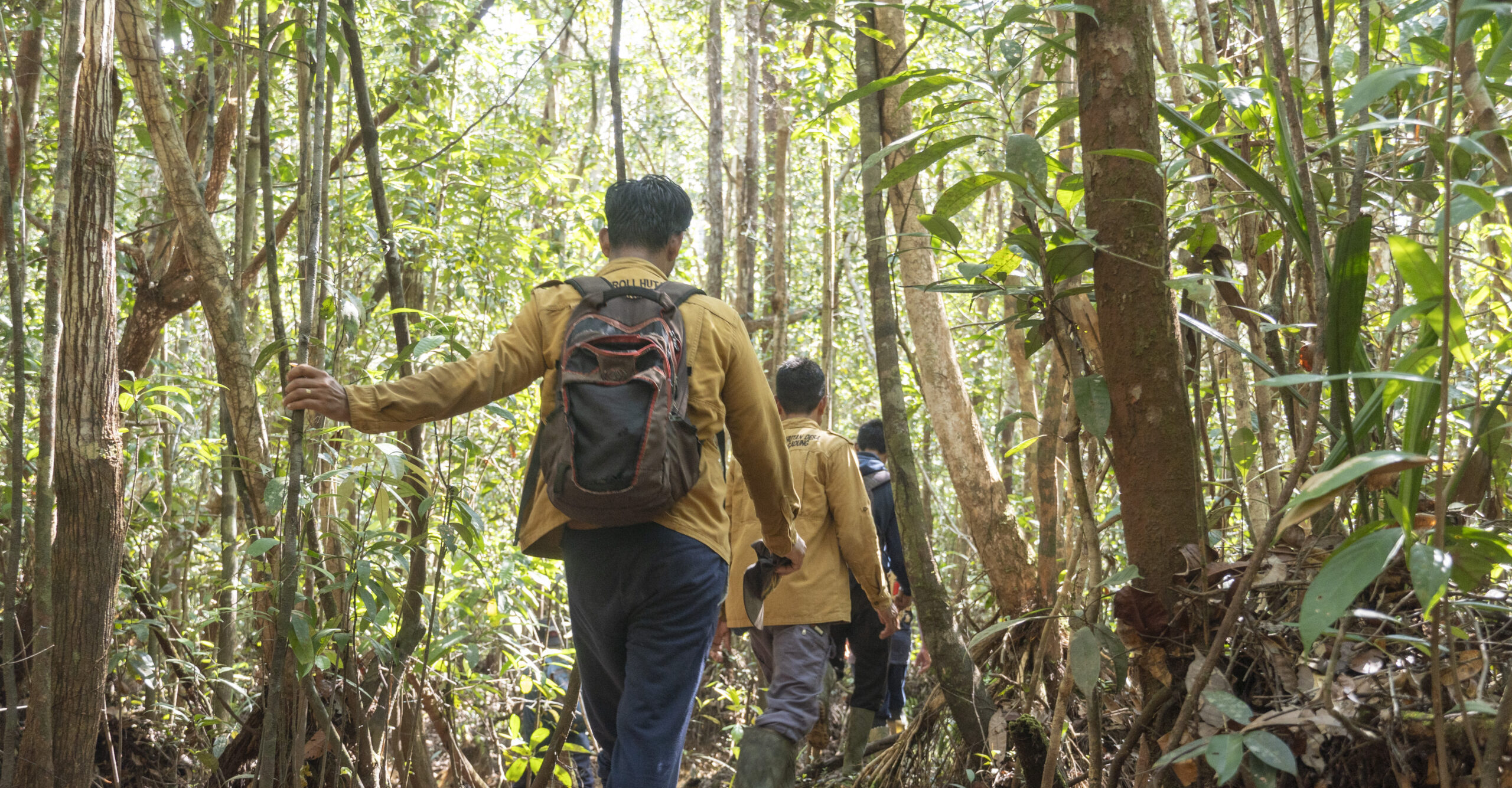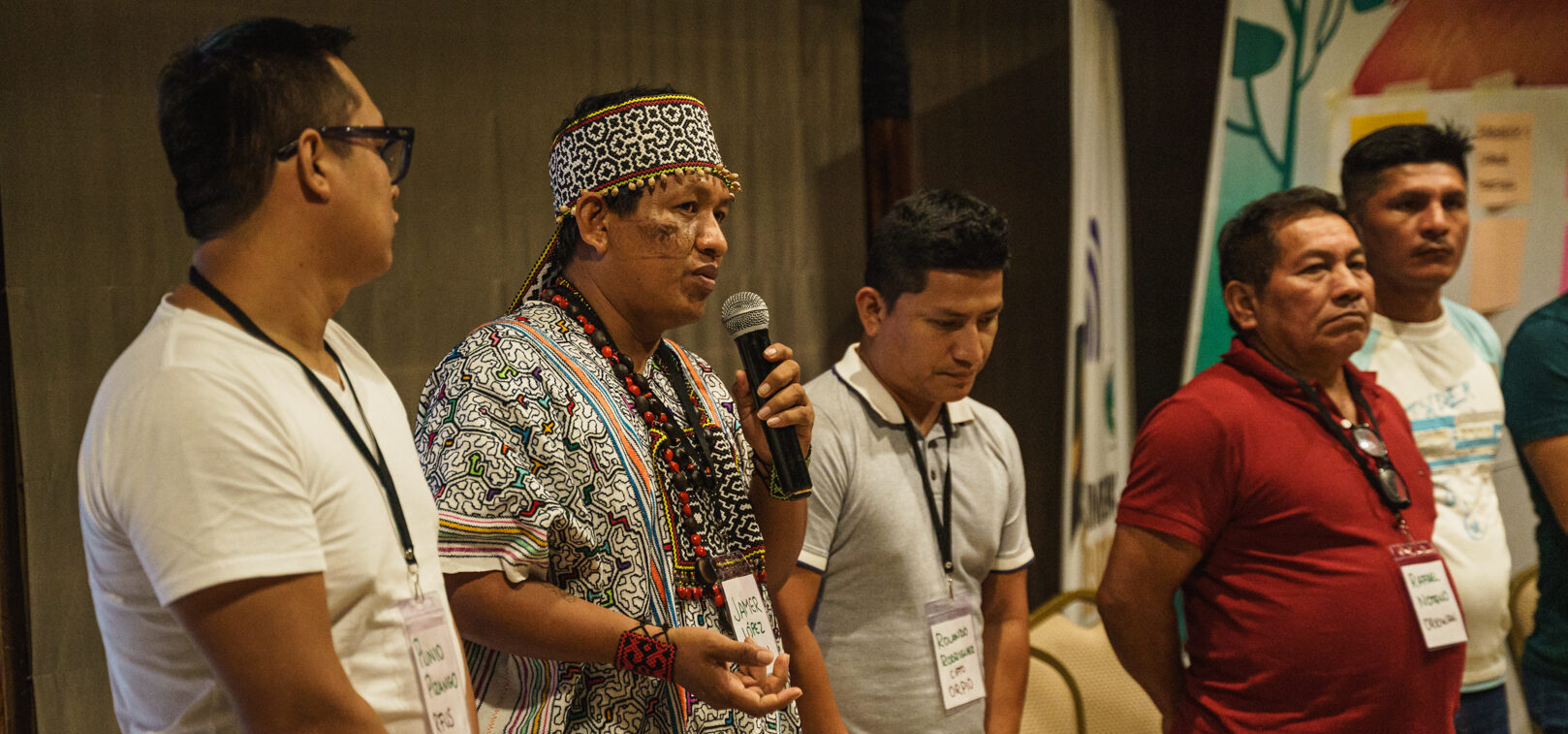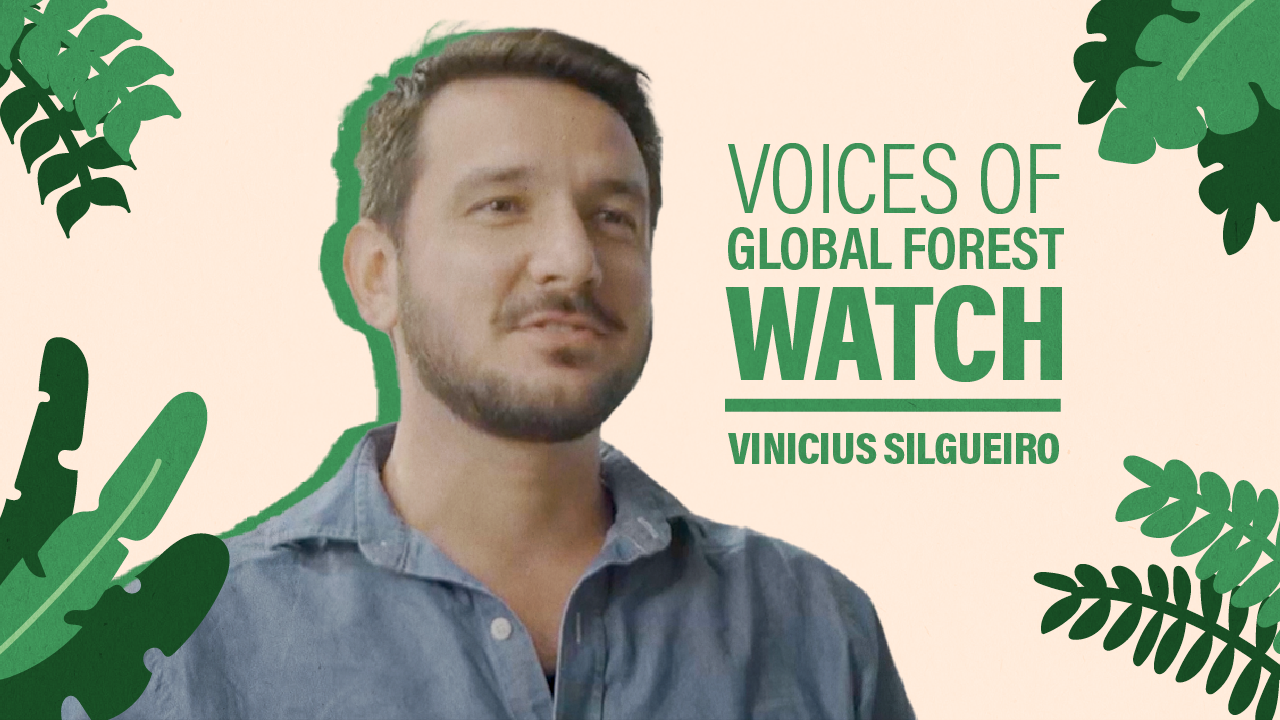- Users In Action
In Riau, Women Organize for Environmental Justice
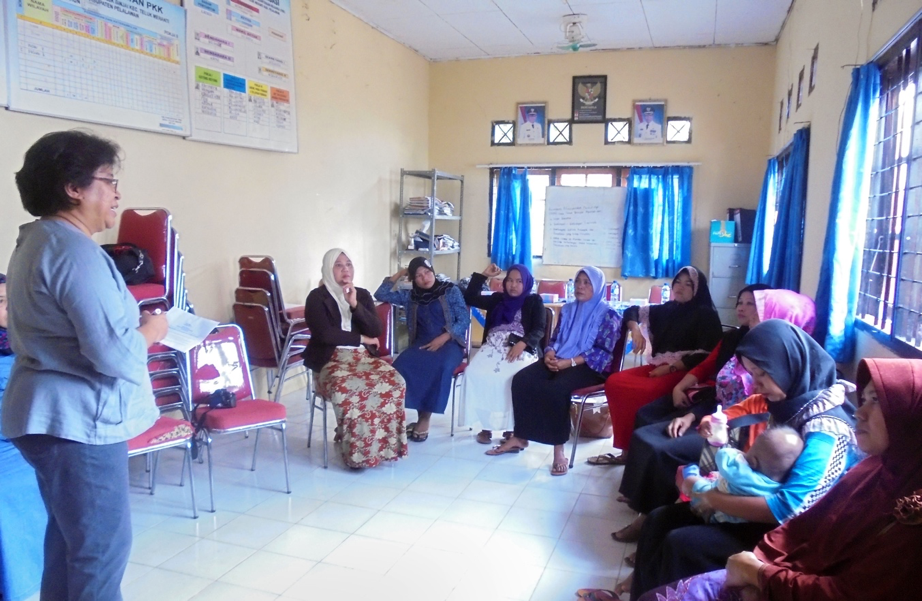
By Patrick Nease and Octavia Payne
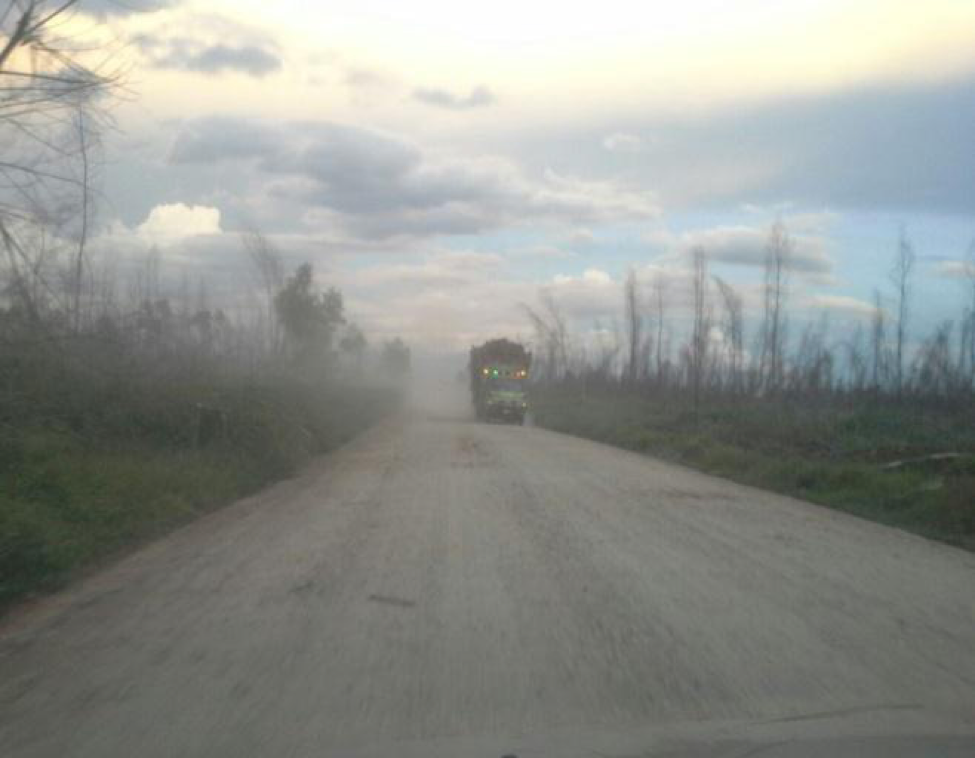 A dusty road to Sungai Berbari village. Photo by Women Research Institute.
A dusty road to Sungai Berbari village. Photo by Women Research Institute.A group of women from Sungai Berbari, a village in Riau, Indonesia, blockade a road that leads to a nearby oil palm plantation. They’re protesting the companies that operate the plantation because they failed to water the roads regularly, as promised, to prevent dust from kicking up as their haul trucks drive by. Dust in the air is a major cause of acute respiratory diseases for the villagers.
The protest grabbed the companies’ attention, but progress was short-lived. The companies watered the road for a few days, but no fines or penalties were issued and it was back to business-as-usual within a week. This kind of scenario has become commonplace ever since the Indonesian government began granting concessions across Riau’s forests for agricultural operations without consulting with communities or enforcing the terms of agreements. To understand and effectively advocate for better land use policy, villagers like the protesting women need tangible information about the forests around them.
Women Bear the Brunt of Environmental Damage
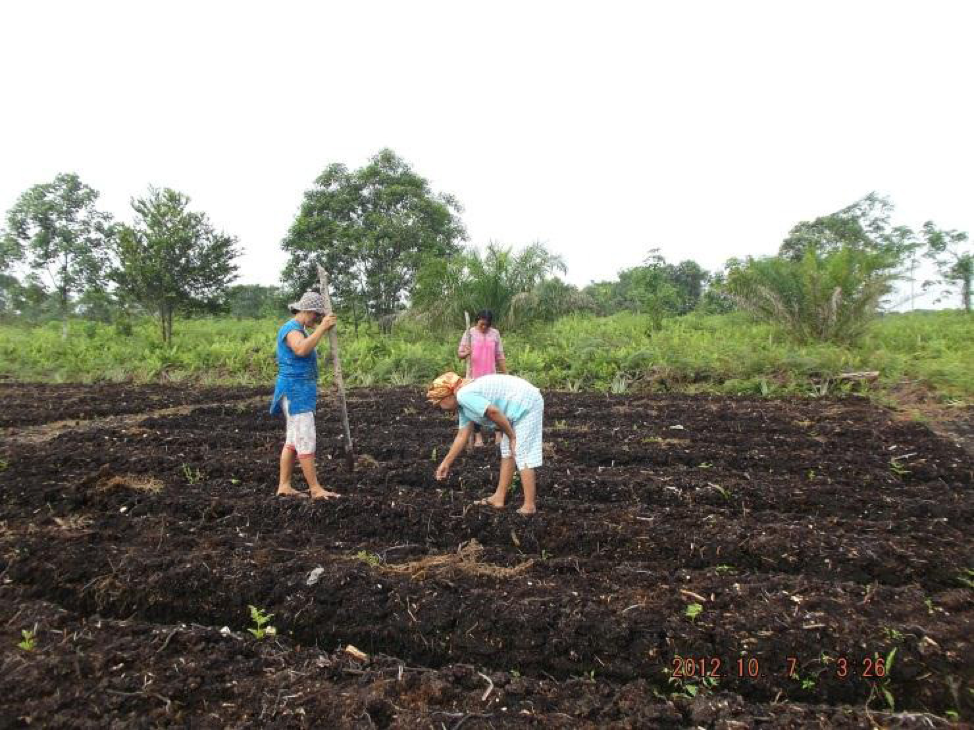 Despite being left out of formal land use decision making processes, women like these farmers in Teluk Binjai play a significant role in cultivating their land. Photo by Women Research Institute.
Despite being left out of formal land use decision making processes, women like these farmers in Teluk Binjai play a significant role in cultivating their land. Photo by Women Research Institute.Poorly managed, large-scale agricultural operations make life difficult for the residents of Sungai Berbari. Women often bear the brunt of the consequences. They are responsible for domestic duties, such as procuring clean water, childcare and managing household finances—the elements of daily life that are most affected by poor land use planning. Plantations often pollute local water supplies, forcing women to buy clean water with already limited incomes. Large plantations also increase the distance women and their children must travel to schools and healthcare facilities. Other problems affect the whole village. For example, companies burn carbon-rich peatland to develop plantations, causing crisis-level haze that increases the risk of pulmonary disease and even leads to death. Despite being disproportionately affected, women have little power to address these issues. They take informal actions, like organizing protests, but remain systematically left out of the formal land use decisions that could have longer-term impacts or avoid these conflicts in the first place. Even when women are invited to attend official discussions, cultural norms dictate that only men should decide on public matters and deter women from participating.
Organizing for Representation in Land Use Planning
The Jakarta-based Women Research Institute, a 2016 Global Forest Watch (GFW) Small Grants Fund recipient, has been working with the women of Sungai Berbari and other villages across Riau facing similar challenges to increase female representation in their official land use planning processes. They trained local women’s groups to use forest change data to influence where and how agricultural companies operate in nearby forests.
 Women Research Institute leads a training session on Global Forest Watch for a women’s group in Riau. Photo by Women Research Institute.
Women Research Institute leads a training session on Global Forest Watch for a women’s group in Riau. Photo by Women Research Institute.Women Research Institute held forums with these groups to address the problems each community faced, including water and air pollution. In many cases, the women did not have clear evidence that activities within concessions were the culprit. By overlaying village maps with datasets like tree cover loss, fire alerts and palm oil production suitability on the GFW platform (also available in Bahasa Indonesian), the women were able to link company operations to the environmental issues that affected their families and community.
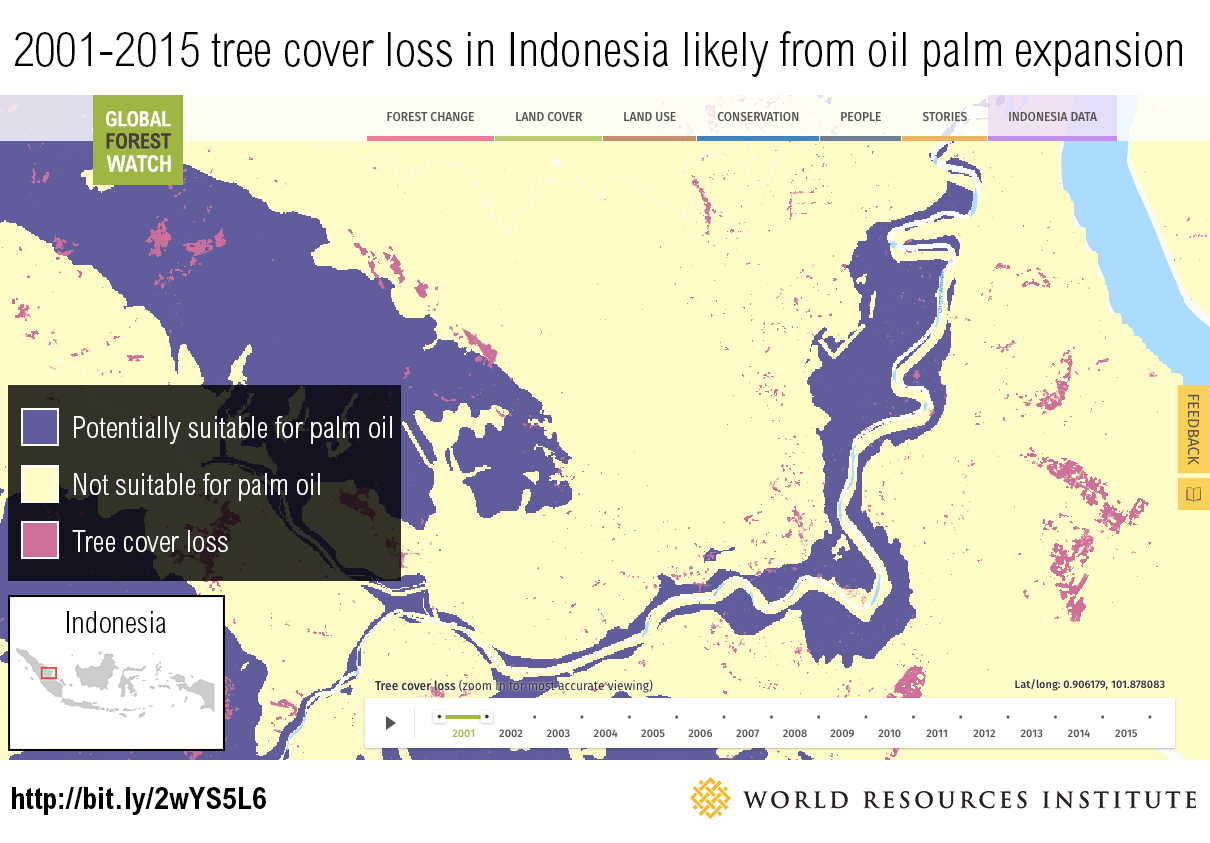 Global Forest Watch allows women trained by Women Research Institute to overlay datasets like tree cover loss and palm oil production suitability to see the impact of industrial operations in their villages. View this location on the GFW interactive map.
Global Forest Watch allows women trained by Women Research Institute to overlay datasets like tree cover loss and palm oil production suitability to see the impact of industrial operations in their villages. View this location on the GFW interactive map.In addition to robust forest change data, Women Research Institute provided training on public speaking and forest policy fact sheets to help women’s groups develop and implement advocacy strategies. For example, women’s groups in villages across Riau partnered to pressure the government to provide necessities like face masks during haze emergencies. In Pungkat, another village in Riau, women convinced companies in the area to hire a midwife to address the lack of reproductive healthcare facilities in their village.
GFW Empowers Women
For these women, concrete data about the forest around them is an essential tool to influence policy and hold companies accountable for their activities. They were amazed that they could zoom in to their village on the GFW map to see the impacts from nearby plantations and felt that the data gave legitimacy to their cause. Women Research Institute was selected again as a 2017 Small Grants Fund recipient and will continue to use GFW in their work in Riau. This year, they plan to develop a handbook on creating community-based early warning systems for forest fires using GFW Fires. Village representatives in fire-prone areas will monitor the alerts and inform fire departments and local disaster management agencies when outbreaks occur. This near real-time response network will help communities mitigate haze issues by detecting fires before they burn out of control and holding responsible companies accountable. Women Research Institute’s efforts in Indonesia show how tools like GFW can be used to improve public participation for women. Open access to timely forest data does more than just give women a greater voice; it increases their agency to improve their welfare.
